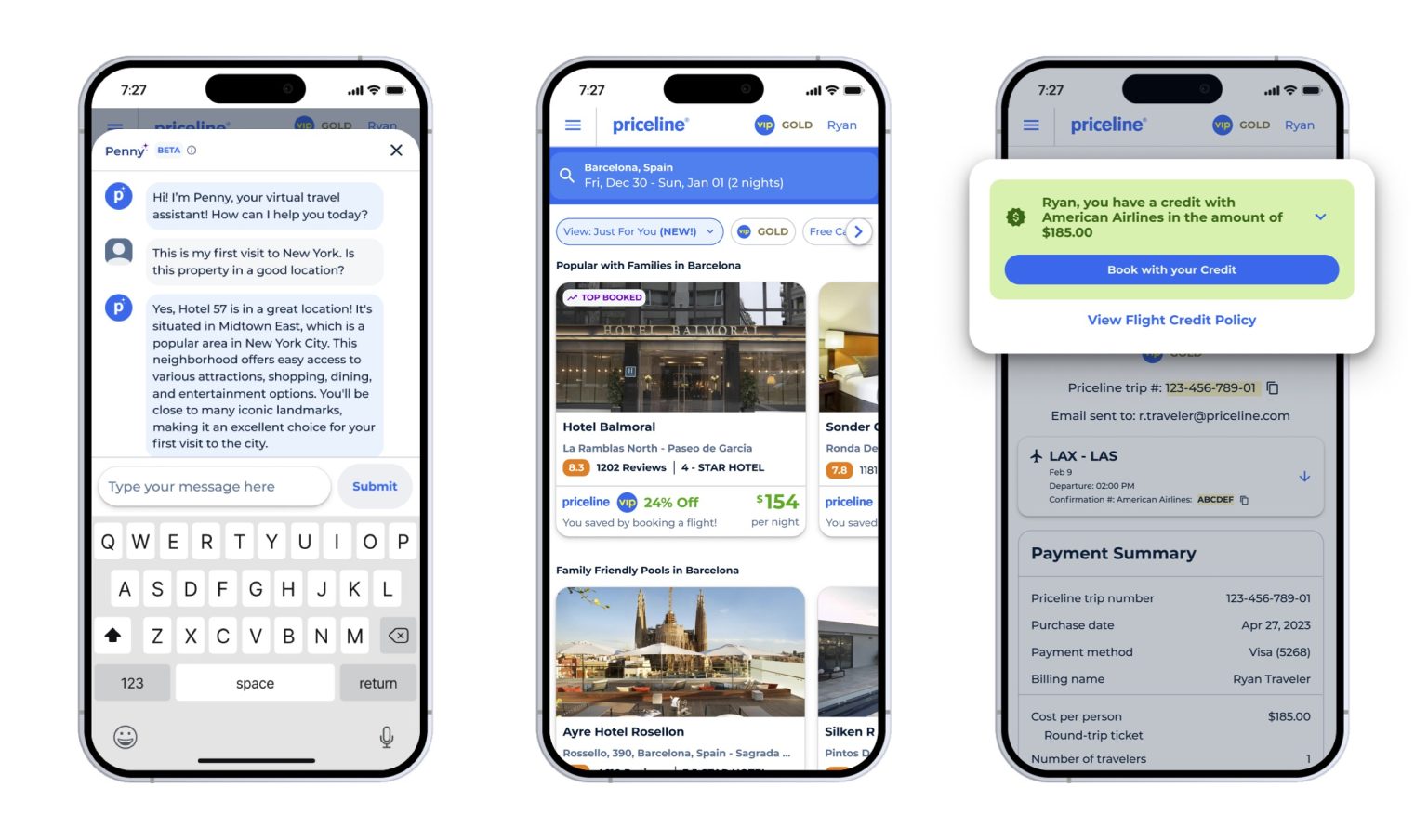AI voice technology is transforming the way travellers plan and book their trips, and Priceline’s Pennybot is at the forefront of this evolution. For years, online travel booking platforms have relied on manual inputs, forcing users to spend time typing and navigating through multiple screens. With the rise of conversational AI, this process is being streamlined, making travel booking faster, easier, and more personalised.
Scott Dylan, a technology expert and founder of NexaTech Ventures, examines how Priceline’s Pennybot is reshaping the travel industry and what challenges still lie ahead for AI voice technology.
The Role of Pennybot in Transforming Travel
Priceline’s integration of AI voice technology through Pennybot represents a major shift in how users interact with travel platforms. Rather than the traditional method of typing queries into a search engine, Pennybot allows users to simply speak their requests. For example, instead of searching “hotels in Rome,” travellers can now ask Pennybot, “Can you find me a hotel in Rome near the Colosseum?”
Pennybot, powered by OpenAI’s Realtime API, responds in real time to these complex queries, engaging users in a natural conversation. By remembering preferences and past behaviours, it can offer tailored recommendations, making the booking experience smoother and more intuitive. According to Scott Dylan, this type of interaction marks a significant departure from traditional methods, where users had to manually input and compare options. Pennybot brings a level of convenience that travellers are increasingly demanding in today’s fast-paced world.
Benefits for Travellers
The key benefit of using AI voice technology, such as Pennybot, lies in the convenience and personalisation it offers. Travellers can now book hotels, find local attractions, or modify their reservations without lifting a finger. Pennybot’s ability to anticipate user needs based on previous bookings enhances the personal experience, saving time and reducing the need for repetitive actions.
Scott Dylan points out that conversational AI like Pennybot doesn’t just simplify the booking process – it also humanises it. The AI’s natural language capabilities allow it to engage users in a way that feels more like talking to a travel agent than interacting with a computer. This ability to mimic human interaction is a game-changer for customer service, creating more meaningful and effective engagements.
Challenges Facing AI Voice Technology in the Travel Sector
Despite the many advancements, there are still challenges that AI voice technology must overcome in the travel industry. One of the main issues is ensuring that AI can accurately process diverse accents and dialects. While Priceline has made significant strides with Pennybot, understanding speech nuances across multiple languages remains a challenge, and misinterpretations can frustrate users.
Data privacy is another critical concern. As AI becomes more integrated into everyday interactions, companies like Priceline must ensure that users’ sensitive data, including payment information and personal preferences, is protected. Scott Dylan emphasises that while AI offers incredible benefits, companies must remain vigilant in safeguarding customer data and complying with evolving privacy regulations.
Additionally, Pennybot’s AI system must continue to develop its ability to handle complex travel itineraries, such as multi-destination trips or group bookings. While Pennybot is excellent for simple queries and hotel bookings, managing more intricate travel plans remains a hurdle for conversational AI.
Will AI Voice Technology Replace Traditional Travel Booking?
The rise of AI voice technology prompts an important question: will voice assistants like Pennybot eventually replace traditional online booking methods? According to Scott Dylan, the answer is not so straightforward. While Pennybot offers incredible convenience, many travellers still prefer to visually compare options and check details before making a final decision.
Voice AI is likely to complement traditional booking methods rather than replace them entirely. For simple tasks, like finding a hotel or changing a reservation, AI voice technology provides unmatched ease and speed. But for more complex or nuanced bookings, traditional platforms will still play an essential role. The future likely holds a hybrid system where users can choose between AI voice assistance and manual booking, depending on their needs.
The Future of AI in Travel
Priceline’s Pennybot represents a significant leap forward in how travellers book and manage their trips. With real-time voice interactions, personalisation, and natural language capabilities, Pennybot sets the stage for a future where AI plays a central role in the travel industry. However, challenges such as speech recognition, data privacy, and handling complex bookings must be addressed for AI voice technology to reach its full potential.
Scott Dylan believes that the continued development of AI voice systems like Pennybot will lead to a more streamlined, efficient, and personalised travel experience for users. As the technology evolves, it will likely become an indispensable tool in travel planning, offering new levels of convenience and flexibility.

